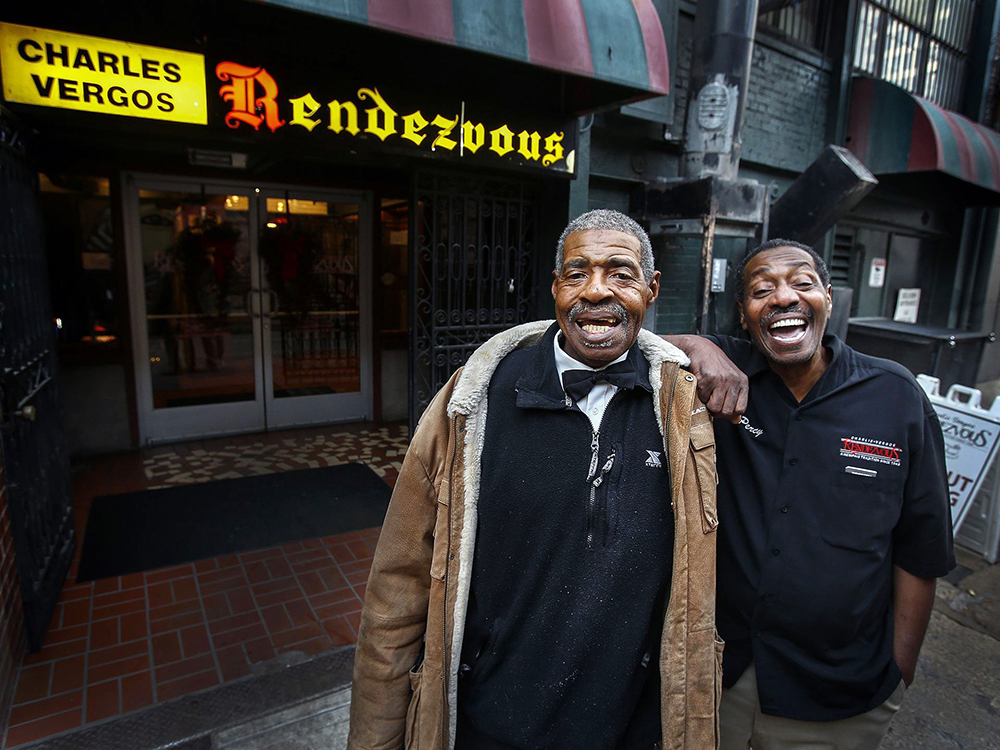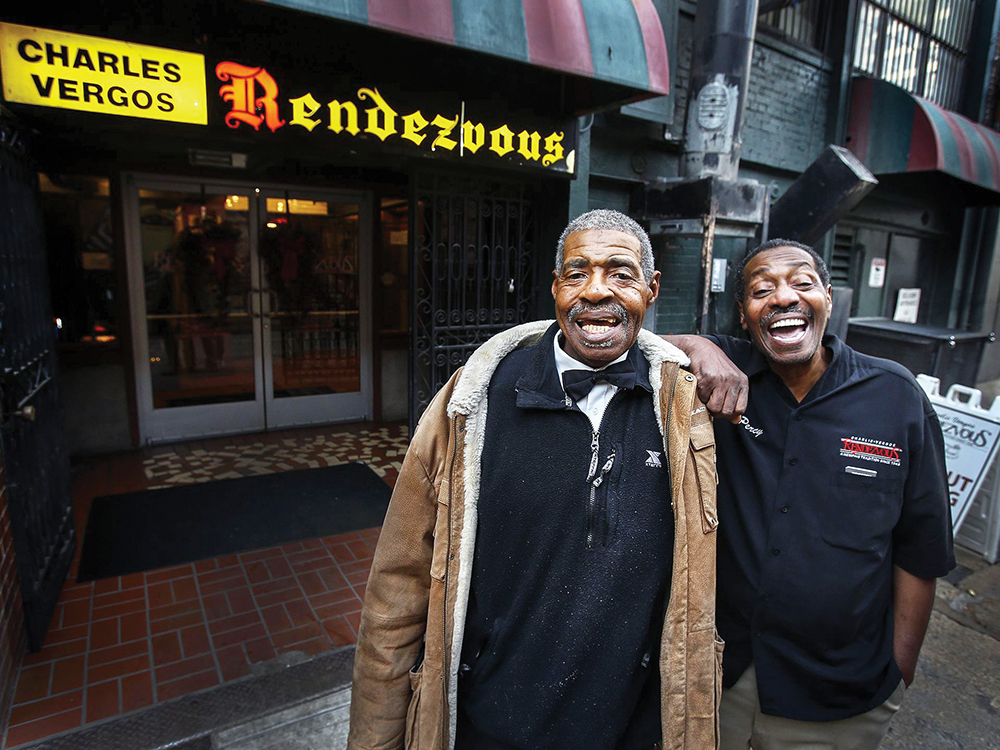The night The ’Vous won the Best Hometowner Feature Award at Indie Memphis 2022, director/producers Jeff Dailey and Jack Lofton missed the awards ceremony. The film had premiered that afternoon to a sold-out Playhouse on the Square, and the crew had trekked Downtown for a reception at The Rendezvous, the storied barbecue restaurant whose inner workings Dailey and Lofton spent seven years documenting. Figuring they had missed the awards ceremony, the duo headed to The Lamplighter, where my wife Laura Jean Hocking and I were hosting our annual filmmakers’ party. Naturally, the Indie Memphis awards ceremony went way over its allotted time, so Lofton was giving up and leaving the Lamp at the exact moment I was walking in the door. “We didn’t know where everybody was, so we were about to bail,” recalls Lofton.
“Where are you going? You won!” I half yelled at him.
It took a moment for the news to sink in, so I got to watch the realization that all their hard work had paid off play out on his face. It’s definitely a top-five Indie Memphis memory for me — and for Lofton, it’s number one. “Then Larry Karaszewski, the writer of Man on the Moon, walked in, and I said, ‘What are you doing here?’” Lofton continues. “He said, ‘Who the hell are you?’ And I said, ‘I’m the guy who made The Rendezvous documentary, The ’Vous,” And he’s like, ‘Oh my God! You won! Where the hell were you? I was supposed to give you the award!’ It was a great time. I respect him tremendously. He said some amazing things about the restaurant, and he called it [The ’Vous] ‘a beautiful American story.’”
Lofton and Dailey are both from Arkansas and have fond memories of eating at The Rendezvous while they were visiting Memphis with their families. “It was always for the farm convention,” says Lofton. “My dad was a farmer in Hughes, Arkansas, and we’d go to church in Memphis and eat at The Rendezvous.”
When they read a Commercial Appeal article about longtime Rendezvous servers “Big Robert” Stewart and Percy Norris retiring, Lofton and Dailey realized they had a story to tell. “It’s an institution, it’s about the people. What they’ve built there, the stories that they’ve lived, and these guys are stepping down, retiring, and passing the torch. We’ve got to get in there right now. So, within three days, we had — with Jeff and some of his friends and people that we knew — a full film crew down there.”
Filming would continue for years, with film crews acting as fly-on-the-wall observers for bustling nights on the restaurant floor, personal moments with the Vergos family, and endless stories about the history that happened in the restaurant. “We’re a seven-year overnight success,” says Lofton.
“A lot of the new films that are coming out these days, they don’t have the budget or the time to spend time with the participants, with their characters,” says Dailey. “What we wanted to do was immerse ourselves and get to know the people personally as well as professionally. Yeah, it’s a lot more challenging that way, but I think it’s a richer product in the end.”
Against the backdrop of famous diners and pivotal deals sealed over a plate of ribs was the everyday drama of a family business navigating change. “It’s an important story to tell when we were at the crossroads of a company during Covid and the retirement of some of our Rendezvous originals,” says Anna Vergos, whose grandfather founded the restaurant. “I’m proud to look back on this documentary and see how much growth we’ve all felt and continue to embrace.”
One of the film’s most compelling storylines regards Calvin, a novice busboy trying to get his foot in the door. “It just sort of wrote itself once we were down there,” says Lofton. “The story of the busboy, and how the institution works, and the family dynamics — it was all there.”
After a rapturous reception at Indie Memphis, The ’Vous completed a festival run that included a sold-out screening at DOC NYC, the biggest documentary festival in North America. This week, Memphis will get a chance to see The ’Vous when it kicks off its theatrical engagement at the Malco Paradiso.
“We were so fortunate that people across the spectrum of The Rendezvous, from waitstaff to the family to many others, opened their personal lives to us — you really can’t predict what’s going to happen when you dive into people’s lives! We’re just so grateful to them, and to the city of Memphis. It’s a place that we both love.”
The ’Vous is showing at Malco Paradiso through February 1st.

